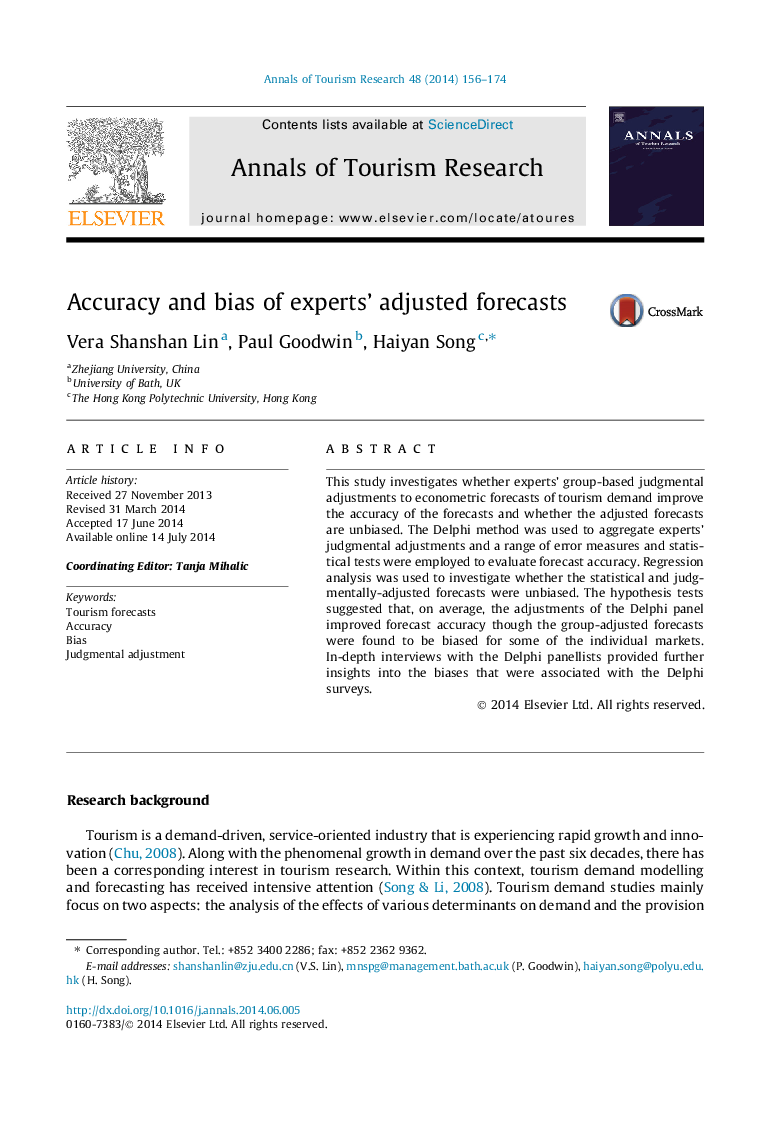| Article ID | Journal | Published Year | Pages | File Type |
|---|---|---|---|---|
| 1007097 | Annals of Tourism Research | 2014 | 19 Pages |
•On average, Delphi-based judgmental adjustments made to statistical forecasts of tourism numbers improved accuracy.•Forecasts for the long-haul markets were more accurate than those for the short-haul markets.•The consensus group forecasts were, on average, unbiased.•Judgmentally adjusted forecasts were biased for individual markets.•In-depth interviews with forecasters yielded insights into their rationale for making adjustments.
This study investigates whether experts’ group-based judgmental adjustments to econometric forecasts of tourism demand improve the accuracy of the forecasts and whether the adjusted forecasts are unbiased. The Delphi method was used to aggregate experts’ judgmental adjustments and a range of error measures and statistical tests were employed to evaluate forecast accuracy. Regression analysis was used to investigate whether the statistical and judgmentally-adjusted forecasts were unbiased. The hypothesis tests suggested that, on average, the adjustments of the Delphi panel improved forecast accuracy though the group-adjusted forecasts were found to be biased for some of the individual markets. In-depth interviews with the Delphi panellists provided further insights into the biases that were associated with the Delphi surveys.
